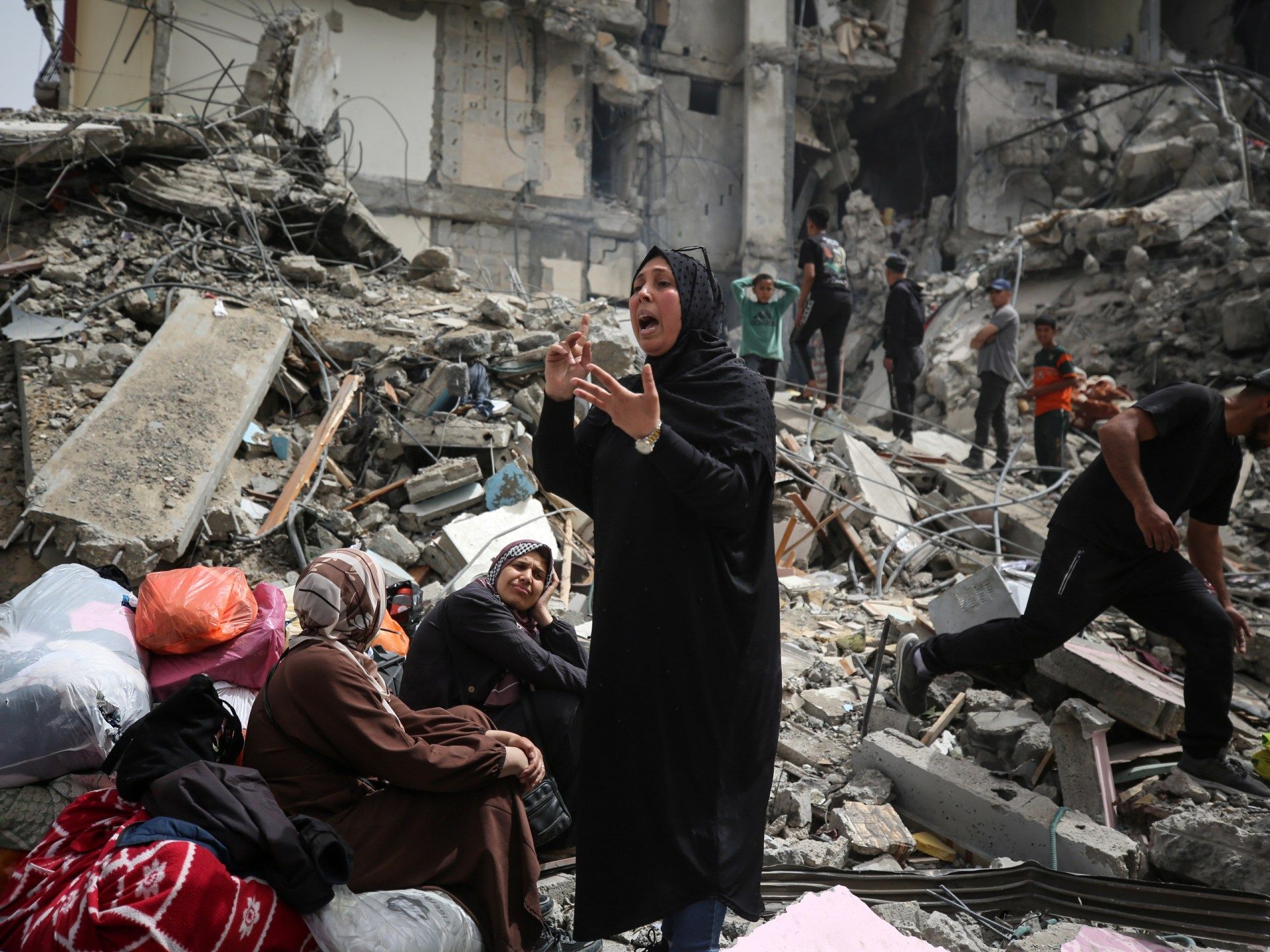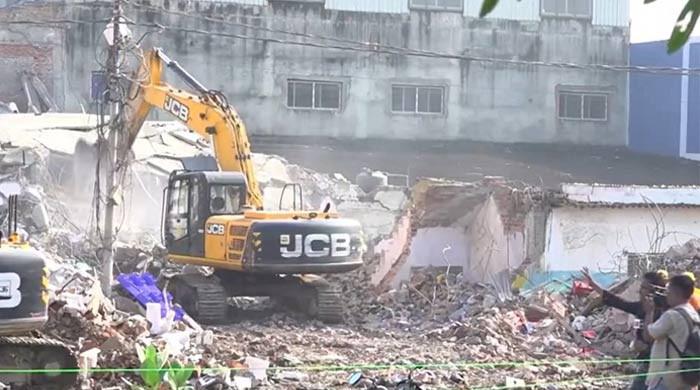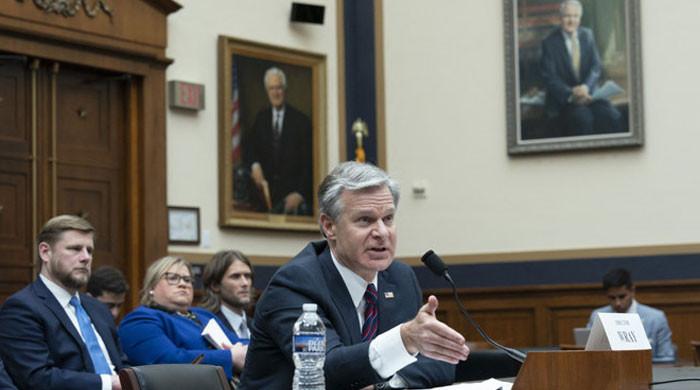Washington DC – Every day, the images emerging from Gaza remain largely the same: Israeli bombs killing civilians. Palestinians fleeing their homes and makeshift shelters. Hamas attacks Israeli forces and posts the images online.
After nearly 230 days of fighting, experts say Israel's war in Gaza shows no signs of ending anytime soon. So what is Israel trying to achieve? And do its goals align with those of its closest ally, the United States?
Israel has said it seeks an “absolute victory” over Hamas, while continuing to receive billions of dollars in unconditional military aid from the United States.
But the country has faced criticism, including from its allies, for its apparent lack of a long-term strategy in Gaza, beyond unleashing firepower on the Palestinian enclave.
However, for some experts destruction and murder are part of the goal. They say Israeli Prime Minister Benjamin Netanyahu is willing to fight an endless war to stay in power while deepening Palestinian suffering.
And although the US government has said it seeks to end the conflict, Washington is pushing Israeli plans by maintaining its “strong” support for Israel, analysts say.
“What Israel seeks to achieve is simply to erase and expel. That's what they want here. And they've been frank about it,” said Osamah Khalil, a history professor at Syracuse University.
'A status quo'
Palestinian rights advocates fear that the war in Gaza is slowly becoming the status quo, another long chapter of pain and dispossession in Palestinian history.
While Netanyahu has said that Israel “has no intention of permanently occupying Gaza or displacing its civilian population,” senior members of his government have suggested otherwise.
Some far-right Israeli ministers have openly called for the displacement of Palestinians from Gaza. Other officials have urged “voluntary migration” of the territory's residents. And last year, the Israel Hayom newspaper reported that Netanyahu tapped one of his assistants to work on a plan to “reduce” Gaza's population.
Egypt, the only country that borders Gaza besides Israel, has vehemently opposed the mass displacement of Palestinians, which experts say would amount to ethnic cleansing.
But Khalil said Israel's plans for the mass displacement of Palestinians have not changed. If anything, the ongoing offensive on the southern Gaza city of Rafah has raised prospects, as many residents taking refuge there have already fled bloodshed and shelling in the north.
And if the Israeli government fails to expel the Palestinians, Khalil believes it will try to contain most of Gaza's population in small areas, preventing them from returning to their homes and subjecting them to bombing, surveillance, starvation and disease.
Adam Shapiro, a political analyst, offered a similar assessment. “Israel is really trying to make any semblance of life impossible in Gaza,” he told Al Jazeera. “The goal is basically to make it impossible for people to continue living there and force them to leave.”
Shapiro added that Israel has managed to level large areas of Gaza, starve its population and kill more than 35,000 people without facing considerable international pressure to end the war.
“It's a status quo that seems sustainable for many actors over a fairly long period of time,” he said.
Matthew Duss, executive vice president of the Center for International Policy, a US-based think tank, also said the conflict risks becoming protracted.
He added that Israel's lack of strategy in Gaza could have “catastrophic” consequences for the Palestinians, the United States and Israel itself.
“We have a war of revenge carried out by a state that has the full backing of the global superpower that protects it from any consequences,” Duss told Al Jazeera.
American vision for Gaza
Meanwhile, in the United States, President Joe Biden's administration has articulated a complex vision for the war and its outcome.
Washington says it supports Israel's push to eliminate Hamas's military capabilities. It also seeks a ceasefire agreement that would see a temporary cessation of fighting, the release of Israeli captives and an increase in humanitarian aid to Gaza.
At the same time, Biden officials have sought a deal to establish diplomatic relations between Saudi Arabia and Israel, which they say would boost prospects for a two-state solution to the Israeli-Palestinian conflict.
As for Gaza, the United States says the territory should ultimately come under the rule of a “reformed” Palestinian Authority (PA).
However, that US plan faces a mountain of obstacles. Netanyahu has repeatedly rejected the prospect of establishing a Palestinian state. Israeli leaders also oppose the Palestinian Authority's return to Gaza.
Even Israeli war cabinet minister Benny Gantz, considered Netanyahu's strongest domestic political rival, recently said that neither Hamas nor Palestinian Authority President Mahmoud Abbas can govern Gaza after the war.
As for the so-called normalization push to build ties between Saudi Arabia and Israel, Duss said it was “strategically wrong.”
“The fact that they're still pushing for this reveals a confusing obsession with this kind of deal as a way to get some good out of this whole catastrophe,” Duss said.
Defeat Hamas
More immediately, it is unclear how Washington envisions a permanent end to the ongoing violence in Gaza while also endorsing the goal of a complete defeat of Hamas, a goal that U.S. officials are beginning to recognize may be unattainable.
“Sometimes when we listen closely to Israeli leaders, they talk primarily about the idea of some kind of landslide victory on the battlefield, total victory,” Deputy Secretary of State Kurt Campbell told CNN last week. “I don't think we think that's likely or possible.”
With an Israeli military victory looking increasingly unrealistic, Duss said insisting on eradicating Hamas before ending the war is a “nonsense position.”
Israel said it dismantled Hamas' “military infrastructure” in northern Gaza in January, but months later its army is again shelling neighborhoods and clashing with Palestinian fighters in the Jabalia refugee camp and parts of Gaza City in the north.
Khalil, the history professor, said that since the start of the war in October, Israel has changed its position on what needs to be done to eliminate Hamas in an effort to prolong and expand the war.
For example, Israel first argued that Hamas headquarters was located at al-Shifa Hospital in Gaza City, an allegation that turned out to be false, despite being backed by US officials.
Now, Khalil said Israel has changed its stance, stating instead that “Hamas is actually located in Rafah. “All his boys are in Rafah.”
But, he added, Israel has yet to justify restricting access to the north.
“Why can't we allow the Palestinians to return to northern Gaza? Because Hamas is still there. We have to conduct 'clearance operations,'” Khalil said, imitating Israeli officials.
He added that Israel is ultimately setting the stage for an endless war.
The day after
As the war continues, American and Israeli officials have been openly discussing what might happen after the fighting ends.
Netanyahu wants the Israeli military to exercise indefinite control over Gaza, a possibility that his own Defense Minister, Yoav Gallant, rejected last week, calling instead for a Palestinian entity to replace the Hamas government.
But what entity could fill that void? Experts doubt the Palestinian Authority's ability to exert control over Gaza.
In 2006, for example, the Palestinian Authority lost a decisive legislative election to Hamas, and the following year tensions erupted into violence between the two groups. Hamas defeated the forces of Fatah – the faction that dominates the Palestinian Authority – in a matter of days and eventually took control of Gaza.
Questions also remain about what the US push for a “reformed” PA means. President Abbas, elected to a four-year term in 2005, is now 88 years old. Notably, Washington has not called elections to determine the new leadership of the Palestinian Authority.
“Bringing back Fatah or the Palestinian Authority on the back of an Israeli tank will not work at all. That's obvious,” Duss said. “You need some kind of local leadership in Gaza that is willing to do this. And since we understand that Hamas will continue to have a presence in Gaza, some acceptance from Hamas will be necessary.”
But the United States and Israel have ruled out involving Hamas in any discussions about the future of Gaza.
Last week, Gantz suggested demilitarizing Gaza and forming an international coalition with “American, European, Arab and Palestinian elements” to oversee its civilian affairs.
That plan has its own set of obstacles, including getting foreign countries to agree to participate in governing Gaza.
Khalil said that even if Israel manages to pursue all Hamas battalions, the remaining Palestinian fighters will remain active.
“It is a fantasy that a NATO peacekeeping force is going to be inserted,” he said. “And then what will happen when the first roadside bomb explodes?”
The bottom line, Shapiro said, is that Israel is focused on the destruction of Gaza, not its future, and the United States fully supports the war regardless of its stated plans.
“I don't know if anyone has a real idea of what governance in Gaza might look like after this.”












